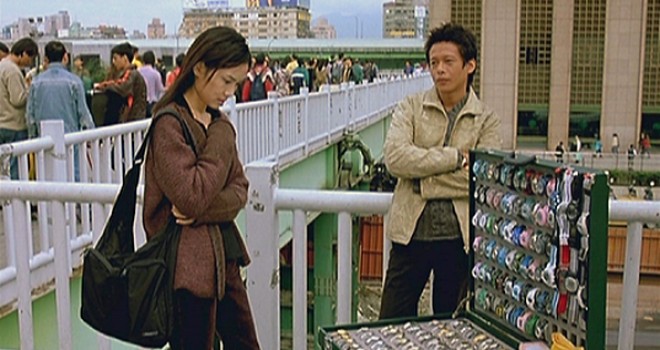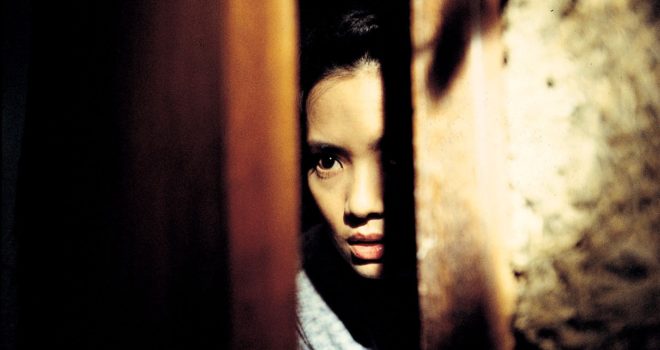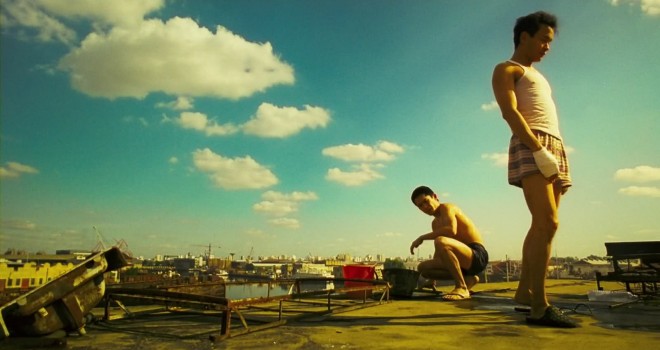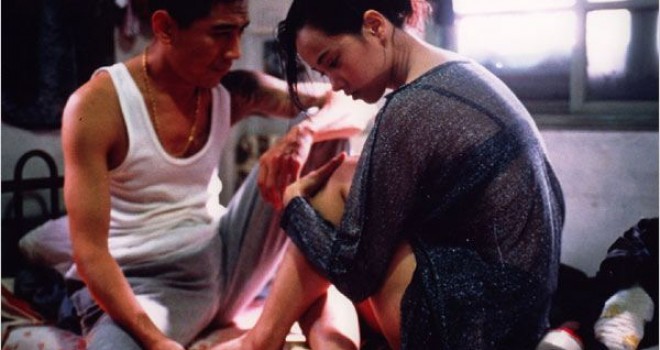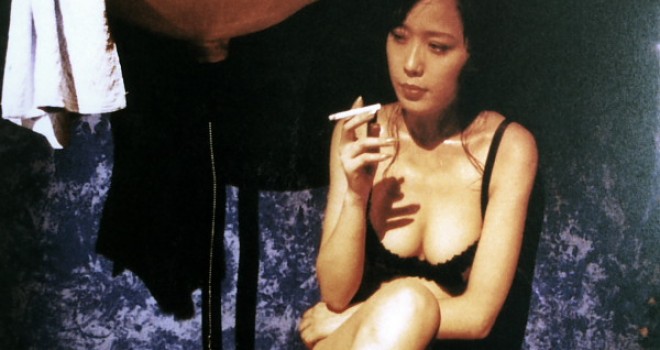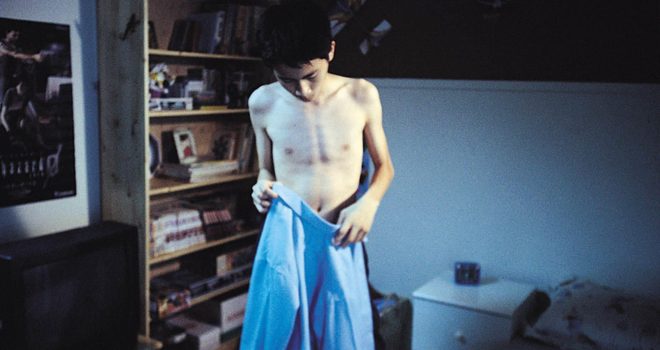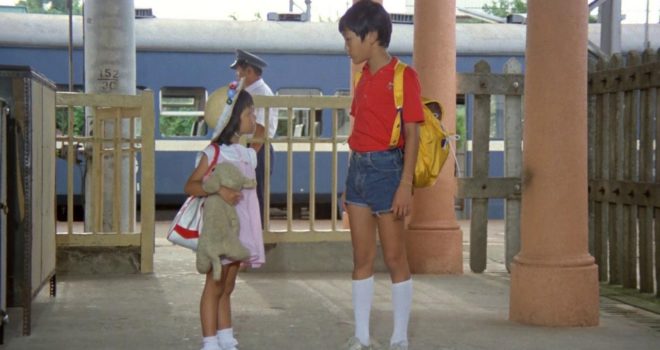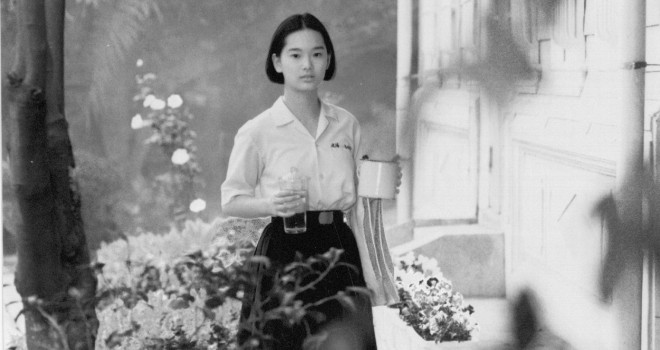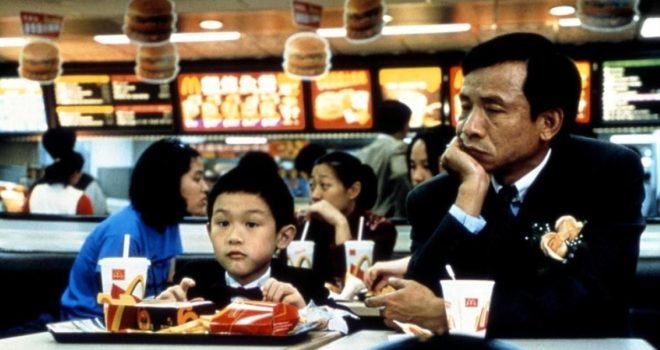FILMS FORYOUR EARS: A TRIBUTE TO TU DUU-CHICH
Surely Tu Duu-chih’s name will not be familiar to many people, including those who saw films by Hou Hsiao-hsien, Edward Yang, Tsai Ming-liang and Wong Kar-wai whose latest film, 2046, has just been released all over France, and apart from those film buffs who carefully read end credits. Yet, to me and many others, this name belongs to the best Asian sound artist. All the best Asian film-makers are ready to pull out ail the stops so that the man they think is “passionately obsessed with sound” can work with them. Since the creation of the Festival of the 3 Continents in 1979, except for a few Taiwanese films with good-quality sound, I have too often found that Asian films have very poor soundtracks, not to mention the music which, nine times out of ten, is pathetically bad. However, when I saw Tsai Ming-liang’s Bu San (Goodbye, Dragon Inn), a film with very little dialogue, I came across an outstanding soundtrack and thought it was clear that the person behind its sound was an artist in his own right. It then seemed obvious to pay tribute to this major sound technician — something we never did before as part of the festival. This year, we are very happy to celebrate Tu Duu-chih, a man who fully deserves it for his artistic contribution to Taiwanese and, in recent years, Asian cinema. The artistic quality of a film mainly depends on the director, who can be considered as a team leader. Yet one should never forget that his choice of actors, cinematographers, sound technicians, etc. is crucial. To be able to work with such a talented technician as Tu Duu-chih can only bring priceless quality to a film.
Alain Jalladeau
Mr Tu is a perfect example of a simple romantic process: when you are in love with something, you can become idealistic, spend more time, work harder, overcome obstacles, fight off failures and convert them into valuable experiences, until one day, you just suddenly realize you are on the top of the world with the one you love. Mr Tu is no doubt the best in the world with sound: something he loves to do. He used to spend days in his studio without sleep to help his filmmaker friends, including myself, complete their work in the best possible quality before major premier events such as Cannes. Mr Tu knows the quality of sound makes up half of a film experience, with the other half being the image. Mr Tu knows the quality of sound makes up more than half of the revelation of deep subtle emotions in an actor’s performance. Mr Tu knows the quality of sound makes viewers feel deeper and broader in a spatial surrounding that usually has only less than 45 degrees of Visual perspective with a 50mm lens. I feel very lucky to have run into Mr Tu in the very first film I made. From that day on, I knew I would not start making a film without Mr Tu. I am very certain that there are quite a few film maker friends who feel the same.
Edward Yang
According to Claude Lévi-Strauss, the artist does not copy, but recreates reality through his or her own personality. Art is the means man has found to make himself a place in this world. An artist’s work is a constantly evolving occupation. But what never changes is his creative technique. A professional baseball pitcher used to say : “For 30 years, all I did was throwing a ball. What else can I do?” Enriched with great experience, such activity may look like a simple act as natural as a language. Through the diversity of his creative acts, the artist, unlike the artisan, masters many more techniques which become a whole grammar. I have known Tu Duu-chih for 30 years. We call him ” the obsessive and passionate sound man “. He has been making and designing sound since the Seventies.Today, he keeps recreating sound…
Hou Hsiao-hsien
Young Taiwanese film-makers call him Big Brother Tu, a nickname that shows both familiarity and great respect. I started working with Big Brother Tu only from my fifth feature film What Time Is It Over There? onwards. However, we first me earlier. In 1983-1984, he took his first award with Run Away, which I wrote the script of. In 1992, while I was working on the post-production of my first feature Rebels of the Neon God, the sound man on my film and the Central Motion Pictures studio did not get on with each other very well. I was very worried. On top of it, my father had just died. One day, Big Brother Tu came by the studio. He saw some footage of my film and decided to help me, although I was still a young film-maker and we hardly knew each other. He told me to just go to my native country for my father’s funeral and he would look after everything. Some time later, he left the CMPC, then the biggest Kuomingdang studio. Many years later, we met each other again in a freer film world. We worked together on What Time Is It Over There?, The Skywalk Is Gone, Goodbye Dragon Inn, and A Cloud on the Edge of the Sky. And we will continue to work together.
Tsai Ming-liang



